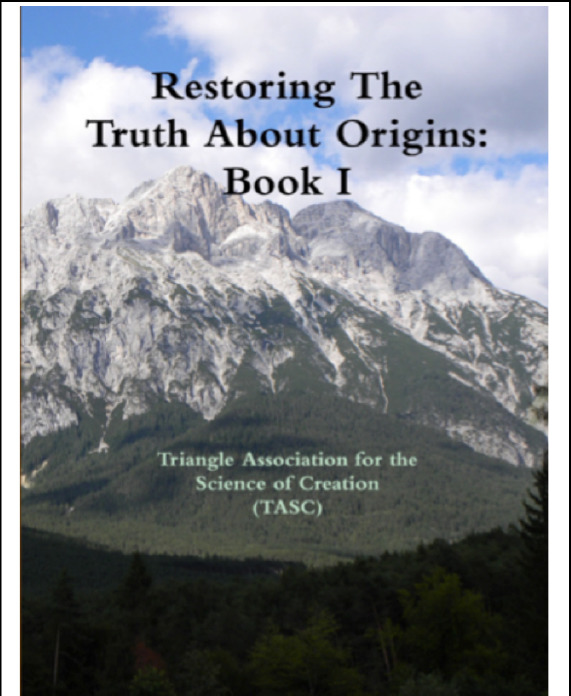Review of Jonathan Wells’s New Book Zombie Science (Part 2)
This is Part 2 of a two-part series on Konathan Wells's new book Zombie Science. 1 Wells is a noted intelligent design (ID) advocate and author of the influential book Icons of Evolution. 2 Most of Part 1 was dedicated to reviewing the original Icons. 3 Here in Part 2, several new icons of evolution will be discussed such as whale evolution, the human appendix, human “tails,” “junk” DNA, the “poor” design of the human eye, antibiotic resistance, and cancer. Other topics such as the impact of evolutionary thinking on education, medicine, social mores, human dignity, and science itself will be touched upon. As before, this review will explore the more important points brought out in the book, chapter by chapter. Wells, who has his doctorate in molecular and cell biology, is a good writer with a keen command of his subject. He writes clearly and concisely with penetrating insight and a sense of humor.
Restoring the Truth About Origins: Book I—Introduction, Availability and Overview

Figure 1 - Front cover of the book
We are excited to announce that TASC‘s Restoring the Truth About Origins: Book I is now available! We pray and hope you will purchase copies for yourself, family, and associates as gifts to enjoy and be even better edified on this important topic of origins. What we think about our origins has had a profound influence on the thinking and actions in our society in the past and will today and in the future. So we encourage you to get copies today (see ordering information under Availability and Purchasing heading below)!
The Origin of Information in Biology
The greatest challenge for evolutionary biology is to account for the information found in codes in DNA, RNA, proteins, and more recently in the epigenome. 1
Genetics Research
Research in genetics has found more evidence which is problematic for evolutionary theory. Below we will examine some of this evidence.
Gene survey indicates animals emerged at same time as people
It is textbook biology, for example, that species with large, far-flung populations—think ants, rats, humans—will become more genetically diverse over time.
But is that true?
“The answer is no,” said Stoeckle, lead author of the study, published in the journal Human Evolution....
Review of Heretic: One Scientist’s Journey from Darwin to Design
Review of Heretic: One Scientist’s Journey from Darwin to Design
by Matti Leisola and Jonathan Witt
Heretic 1
What Scientists REALLY Say about God, Creation and Evolution
Have you ever heard that “All scientists accept evolution as a proven fact” or “real scientists don’t believe in God?” Did you believe it?

Review of Stephen Meyer's New Book Darwin's Doubt
Darwin's Doubt: the Explosive Origin of Animal Life and the Case for Intelligent Design is Stephen Meyer's sequel to his previous book Signature in the Cell. 1
Review of the Book Signature in the Cell by Stephen C. Meyer

Stephen C. Meyer
Signature in the Cell: DNA and the Evidence for Intelligent Design 1 by Stephen C. Meyer is the latest book from a major proponent for intelligent design (ID). 2 Signature is Meyer’s magnum opus. Meyer is the director of the Discovery Institute’s (www.discovery.org) Center for Science and Culture, the flagship organization for the ID movement. He is a trained geologist and has a Ph.D. in the Philosophy of Science from Cambridge. 3 Signature is written at a level accessible to the layman but also informative to the specialist in biochemistry. The book is a history of Meyer’s interest and involvement with ID. The main focus of the book is the origin of the informational code in DNA, especially as it relates to the origin of life. The book discusses several topics including the history of the discovery of the structure of DNA, the cracking of the DNA code, the history and status of origin of life theories (especially the RNA world), basic information theory, various scientific methodologies and modes of thought and why ID is scientific, historical sciences, detecting design, why ID is the best explanation for the origin of the information in DNA, and responses to ID critics. This review will touch upon some of the book’s highlights.
Amazing Coincidences for Life
Most information in this article comes from Nature’s Destiny
by Dr. Michael Denton. 1
Light
About 60% of the sun’s radiation is in the visible range, only about one trillionth of one trillionth of the entire electromagnetic spectrum. Amazingly, this same range is what the air, the atmosphere, is transparent to.

Figure 1
God’s Wisdom in the Genome

The genome of organisms contains their genetic material, which largely determines how they will develop. Scientists are learning more and more about the genome of various organisms, which is revealing more and more about the amazing wisdom of God in their design and creation. It seems that our understanding of the functioning of life is always incomplete, and the genome is always more complex than we had thought. Will we ever fully understand the functioning of life, or will it always be a mystery to us?
